Top Cold Hardy Vegetables To Grow This Fall and Winter
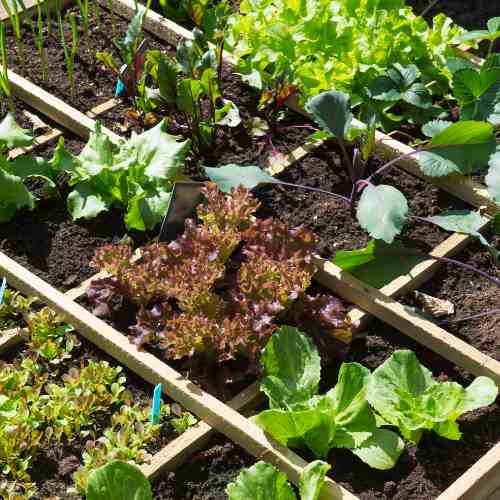
If you’re looking to extend your growing season and enjoy fresh produce even during the colder months, growing cold-hardy vegetables is a great option.
In this guide, we’ll explore the top cold hardy vegetables that thrive in fall and winter gardens. These resilient crops not only withstand lower temperatures but also deliver nutritious harvests when many other plants can’t.
Whether you’re an experienced gardener or just getting started, knowing which vegetables to grow in cooler conditions will help you make the most of your garden year-round.
Get our Gardening Buddy and find veggies that fit your conditions best.
You Can Grow It!
Garlic
Garlic is an exceptional cold-hardy vegetable because it thrives in cooler temperatures, making it ideal for fall and winter planting. Once planted in the fall, garlic quietly establishes its roots during the colder months, requiring little maintenance. As temperatures warm in spring, garlic bulbs begin to grow and mature, providing a bountiful harvest by early summer.
Its natural resistance to frost and pests, along with its versatility in the kitchen, makes garlic a must-have in any cold-weather garden.
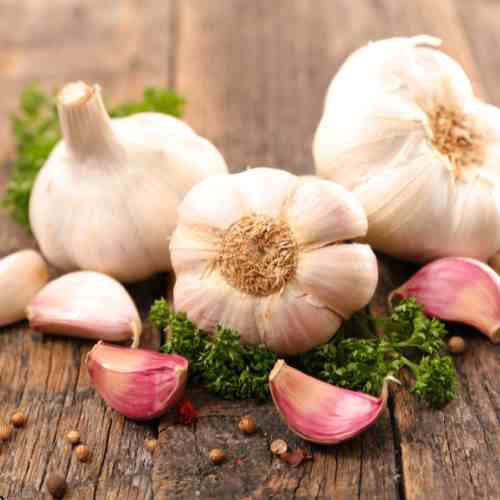
Spinach
Spinach is well-known for its cold tolerance, making it one of the top cold hardy vegetables for fall and winter growing. It thrives in temperatures as low as -6°C (21°F) and can even continue growing under light snow cover.
Spinach’s rapid growth rate allows for multiple harvests throughout the cooler months. Its tender leaves are packed with nutrients, providing a steady supply of vitamins when other crops may struggle, making it a fantastic option for a winter garden.
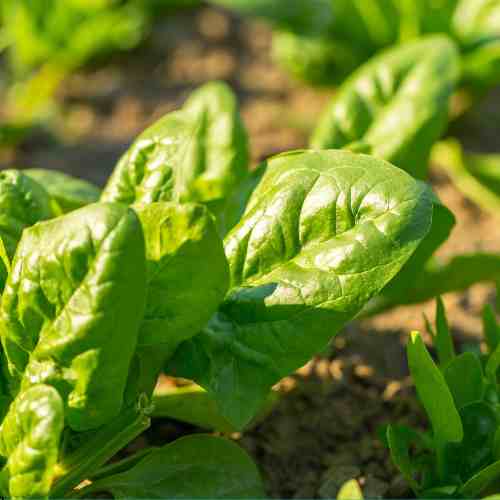
Onions
Onions are highly cold-resistant, making them an excellent choice for fall planting. They can be started from seed, sets, or transplants and will slowly develop through winter.
Once established, onions can survive frost and even light freezing temperatures, making them perfect for long-term growth in colder climates. Onions’ versatility in the kitchen, coupled with their ability to be stored for long periods after harvest, makes them a staple for cold-weather gardeners.
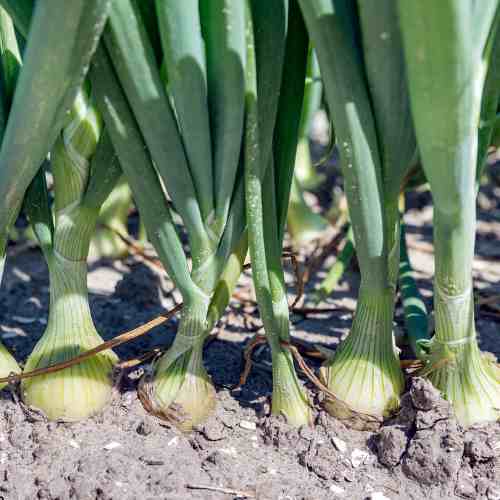
Broccoli
Broccoli is another vegetable that performs exceptionally well in cooler climates. It prefers temperatures between 4°C and 21°C (40°F to 70°F) and can tolerate light frost, which actually improves its flavor.
Broccoli grows best when planted in the fall, allowing it to mature as temperatures drop. It also continues producing side shoots after the main head is harvested, ensuring an extended harvest period throughout the cold season.
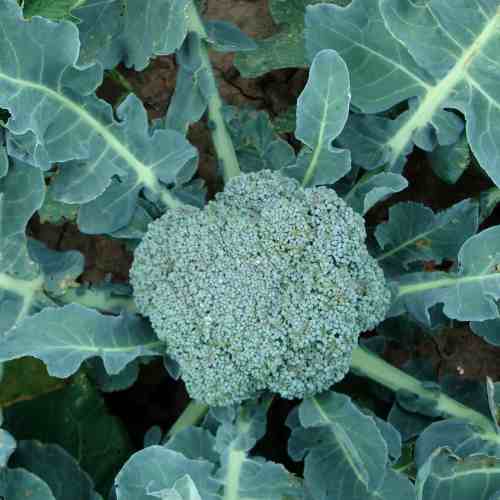
Kohlrabi
Kohlrabi, often referred to as a “bulbous stem vegetable,” is perfectly suited for cold weather. This resilient crop can withstand frost and thrives in cooler temperatures, making it ideal for fall planting.
Its sweet and crunchy flavor intensifies with exposure to frost, providing a delicious and nutritious harvest. Kohlrabi matures relatively quickly, and its ability to store well makes it a practical choice for cold-season gardening.
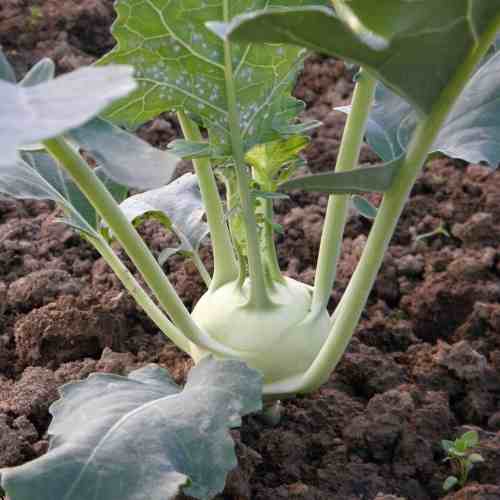
Kale
Kale is one of the hardiest vegetables available for cold-weather gardening. Its flavor actually improves after exposure to frost, making it sweeter and less bitter.
Kale can survive in temperatures as low as -6°C (21°F) and continues producing leaves throughout winter if properly protected. With its high nutrient content and ability to grow even in the harshest conditions, kale is a favorite among cold-season gardeners looking for fresh greens year-round.
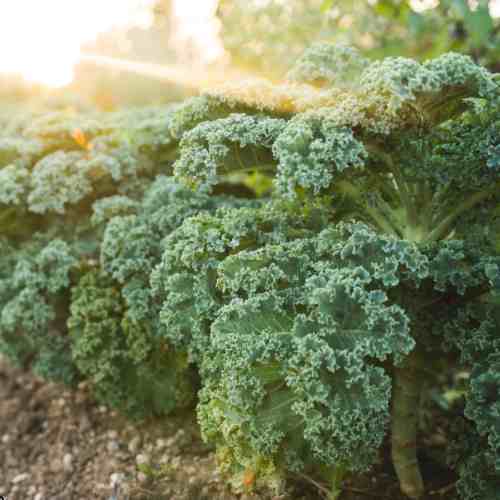
Cabbage
Cabbage is a cool-weather vegetable that thrives in cold conditions. It can withstand light frost and even temperatures just below freezing, making it ideal for fall planting.
Cabbage heads develop slowly during colder months, but the cooler temperatures help keep pests at bay. The dense heads can be harvested well into winter, offering a hearty, nutritious crop for soups, salads, and stews during the colder months.
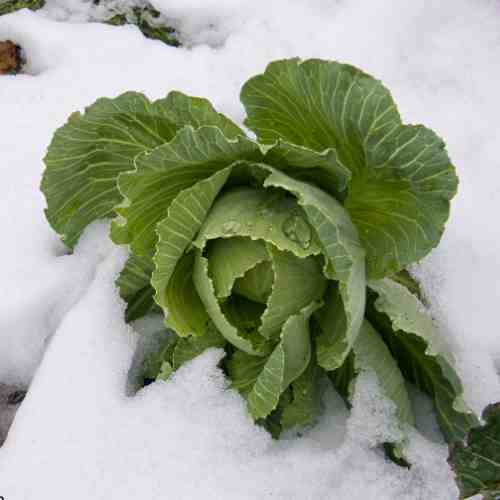
Radishes
Radishes are quick-growing, cold-hardy vegetables that flourish in the cooler temperatures of fall and winter. They mature in as little as 25 days, allowing for multiple harvests even in the cold season.
Radishes’ ability to withstand frost and their preference for cool soil make them an excellent choice for winter gardening. Their crisp texture and peppery flavor add a fresh, zesty kick to winter meals.
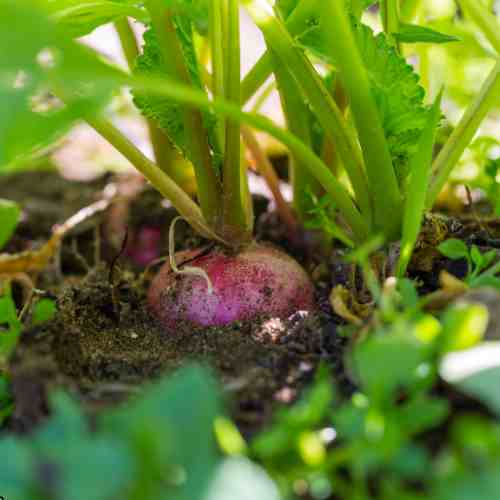
Leeks
Leeks are one of the hardiest members of the allium family and thrive in cold weather.
They can withstand frost and freezing temperatures, allowing them to be harvested throughout winter. Leeks develop slowly but are incredibly resilient, and their flavor becomes milder and sweeter with exposure to cold.
This makes them a valuable addition to soups and stews during the winter months.
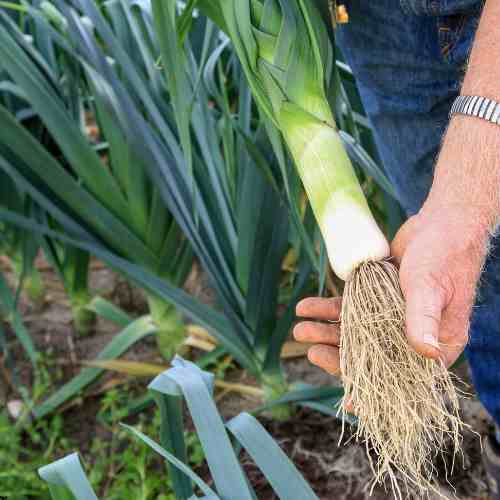
Brussels Sprouts
Brussels sprouts are particularly suited to cold climates, with their flavor improving after the first frost.
These vegetables develop best when planted in the fall, allowing them to mature in cooler weather. Brussels sprouts can tolerate frost and even light freezing, which sweetens the sprouts and enhances their flavor.
Their long growing season and cold resistance make them a great vegetable for winter harvests.
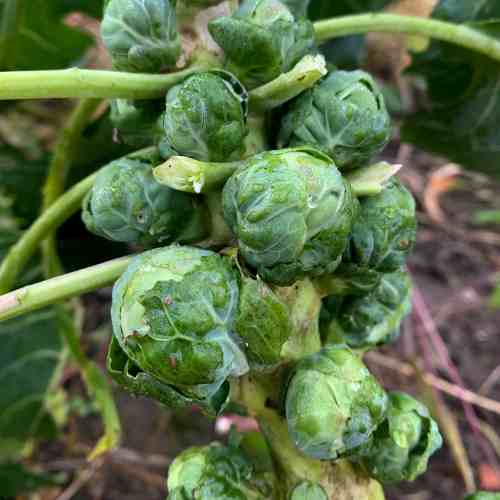
Arugula
Arugula is a fast-growing, cold-tolerant leafy green that thrives in cooler temperatures.
It can withstand light frost and grows quickly, making it perfect for fall and winter planting. Arugula’s peppery flavor adds a bold touch to winter salads, and its ability to reseed itself means that with minimal effort, you can have a continuous harvest throughout the colder months.
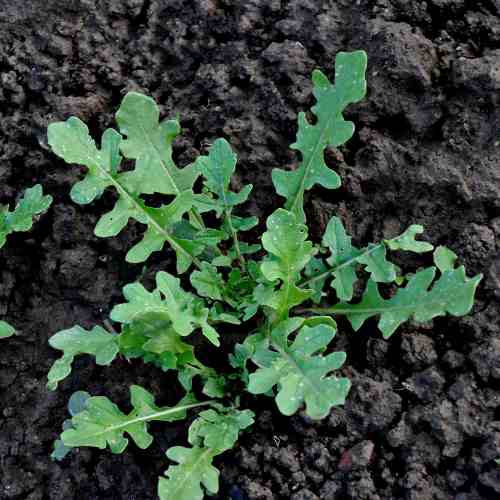
Beets
Beets are a hardy root vegetable that perform well in cool climates. They can withstand frost, and the cooler temperatures enhance their sweetness. Both the root and the greens are edible, making beets a versatile crop for the fall and winter garden.
Beets store well after harvest and can be enjoyed throughout the winter, either fresh or preserved.
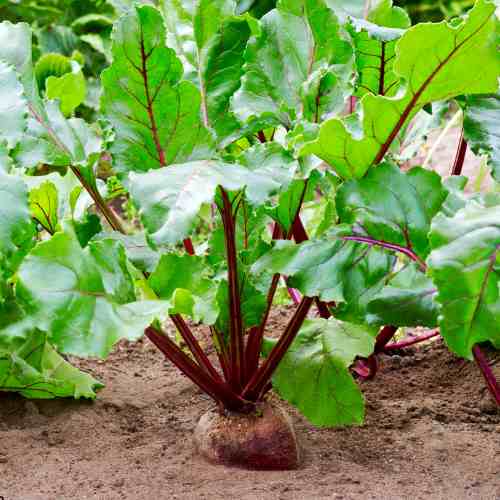
Carrots
Carrots are one of the best vegetables for cold-weather gardening. They thrive in cool soil and can survive frost, with the cold temperatures enhancing their natural sweetness.
Carrots continue to grow slowly throughout fall and can even be harvested from beneath a light covering of snow.
Their long storage life makes them an excellent crop to grow in the cooler months, providing a fresh supply of vegetables when most others are out of season.
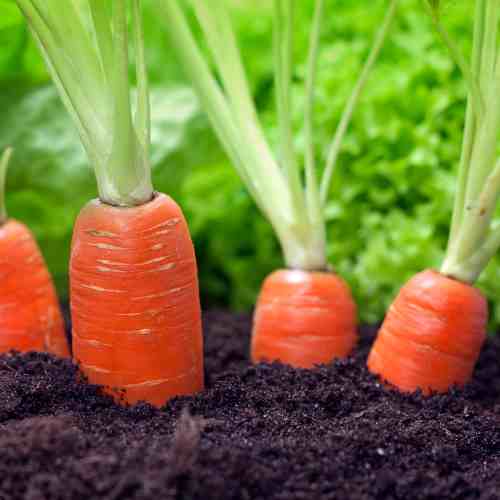
Find the Vegetables that are Best for you
Growing the top cold hardy vegetables is a fantastic way to keep your garden productive throughout the fall and winter. From robust greens like kale and spinach to root vegetables such as carrots and radishes, these crops are perfect for colder climates and can offer a fresh supply of produce even when the frost sets in.
By selecting the right cold-tolerant vegetables and providing proper care, you can enjoy a bountiful harvest no matter the season. Make the most of your garden space and keep your plate full of fresh, homegrown veggies all year long!
Get our Gardening Buddy and find veggies that fit your conditions best.
You Can Grow It!
Partners and Sponsors
We are forever grateful to our partners and sponsors. Send an email to team @ strongecho.com and let’s see how we can grow each other’s impact!





